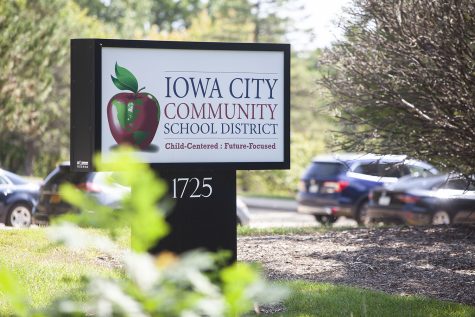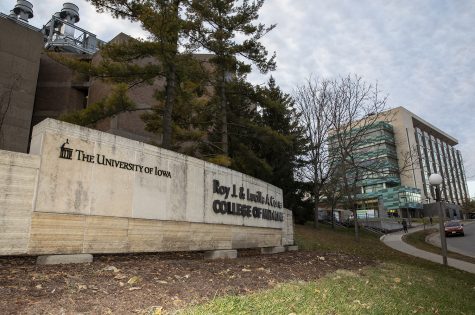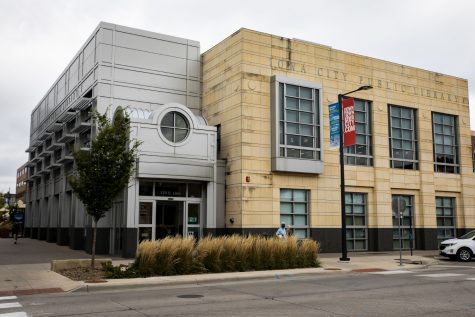Guest Column | The UI should implement one-stop offices
Graduate student Morgan Flory recommends the University of Iowa implement one-stop offices for student affairs.
October 10, 2022
Imagine you are a first-year college student experiencing a crisis very early into your first semester on campus.
You seek out help and guidance from a care coordinator from Student Care and Assistance. After meeting with the care coordinator, it is decided that withdrawing from the university is the best option for you, but the next steps sound complicated.
First, you are supposed to initiate a withdrawal of your entire registration online, but that does not complete the withdrawal process. Next, you may need to set a meeting with your academic advisor if there are issues in removing courses.
Because you live on campus, you would also want to speak with University Housing and Dining to cancel your housing contract and perhaps receive a refund on expenses.
Additionally, you could require assistance from the Office of Financial Aid to navigate a refund of your tuition. There could be further steps to take depending on information provided to you by those you met with, or it may be time to go back online and complete the withdrawal process.
This process could take a few business days, but more than likely would take a couple of weeks from beginning to end. However, the withdrawal process could be expedited through the implementation of one-stop offices on campus.
The implementation of one-stop shops encourages an improved customer service experience for students while reducing operational costs for the university. A major aim of this innovation is to reduce procedural bottlenecks.
A one-stop office provides students with one location to go to where trained staff of various campuses offices are available to assist or to refer students elsewhere if need be.
At the University of Iowa, the only version of a one-stop-shop that exists is a combination of UI Billing and ID Card Services.
At Kirkwood Community College, it recently constructed Iowa Hall that houses the offices of student life, career services, student assistance, financial aid, admissions, registrar, veteran’s affairs, the Dean of Students, counseling, global learning, student food pantry, and equity, inclusion, and support.
Students tend to better understand where to go for assistance when it is centrally located rather than being shuffled from one office to another which is still far too common. Implementing a one-stop office helps close the feedback loop and demonstrate that student and staff voices are being heard to affect change.
This sort of recentralization goes beyond the experience of students and staff and radiates through the entire campus community as folks are more satisfied at institutions that have one-stop offices.
These sorts of offices began to pop-up at colleges and universities in the 1990s, and it appears that most have a focus on assisting students with financial aid, registrar services, and/or billing concerns. From a student affairs lens, one-stop offices share the community practices of student learning and student services.
I suggest that academic advising and career services become the next one-stop office to continue with a student-centered approach.
Academic advisors provide services that lead students to seek the coaching offered through career services. Moreover, conversations with career coaches may initiate a student meeting with their academic advisor to change, add, or drop majors, minors, and certificates.
I believe that cross-training academic advisors and career coaches would also be beneficial to the success of this one-stop office.
- Morgan Flory, Higher Education and Student Affairs graduate student
Columns reflect the opinions of the authors and are not necessarily those of the Editorial Board, The Daily Iowan, or other organizations in which the author may be involved.













